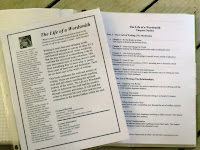Most writers I know are part of a conflicted group.
We’re driven to write—spending
time composing poetry, writing books, researching articles. We doodle titles, character
names, and plot ideas on scraps of paper. All the while feeling guilty about the
time we spend pursuing our dream. I call it writer's guilt.
Everyone of us has felt the tug of war deep inside. it’s all part and parcel
when you work at home.
I’ve fought
the battle for years—sometimes more successfully
than others. And the craziest thing is the guilt is pretty much self
imposed.
My family is frequently more supportive of my writing time than I am. So
this Christmas I'm gifting myself with freedom from guilt and time to
write.
Time to Write
Years ago I made a conscious decision to give myself
permission to make writing a priority. I gave myself the gift of time to write. Sometimes it would have been easier to
avoid the blank page and not risk the failure. But I refused to cave into the
fear.
Has it been worth it?
You bet it has! Not only have I gotten farther along with my
goals and dreams, but it’s given me a self-confidence I didn’t expect. The more
I make writing a priority, the better I get at it. Then the more success I
have, which leads to the courage to push myself and reach for the stars.
Here are the steps I took to set aside time for writing:
1. Come up with a schedule and keep regular, consistent
hours. Notice I said regular
hours—not normal ones. For years I wrote with young children. That meant
writing in the afternoons and after they were in bed. Just because you’re
working odd hours doesn’t mean you can’t have a schedule.
3. Be consistent.
If you’re not accepting calls from your mother-in-law because you’re working,
don’t spend the afternoon on the phone with your best friend. Stay focused on
your writing. This is even more critical if your time is at a premium.
4. Recruit a
support team. Instead of adversaries, enlist your friends and family to help
you reach your writing goals. Communicate those goals, clearly and frequently.
Ask for their help to reach them. After all, what mother doesn’t want to help
her baby succeed!
5. Share your
victories. Let those that help you share in the joy of goals accomplished and
milestones reached.
What do you do to
make your writing time a priority? What interruptions do you struggle with the
most? Share your thoughts and we’ll all support each other.
Don’t forget to
join the conversation!
Blessings,
Edie
Edie Melson is the author of numerous books, as well as a freelance writer and editor. Her blog, The Write Conversation, reaches thousands each month. She’s the co-director of the Blue Ridge Mountains ChristianWriters Conference and the Social Media Mentor at My Book Therapy. She’s also the Military Family Blogger at Guideposts. Com, Social Media Director for SouthernWriters Magazine and the Senior Editor for NovelRocket.com. Connect with her on Twitter and Facebook. Don't miss her new book from Worthy Inspired, WHILE MY SOLDIER SERVES.
Edie
Edie Melson is the author of numerous books, as well as a freelance writer and editor. Her blog, The Write Conversation, reaches thousands each month. She’s the co-director of the Blue Ridge Mountains ChristianWriters Conference and the Social Media Mentor at My Book Therapy. She’s also the Military Family Blogger at Guideposts. Com, Social Media Director for SouthernWriters Magazine and the Senior Editor for NovelRocket.com. Connect with her on Twitter and Facebook. Don't miss her new book from Worthy Inspired, WHILE MY SOLDIER SERVES.












